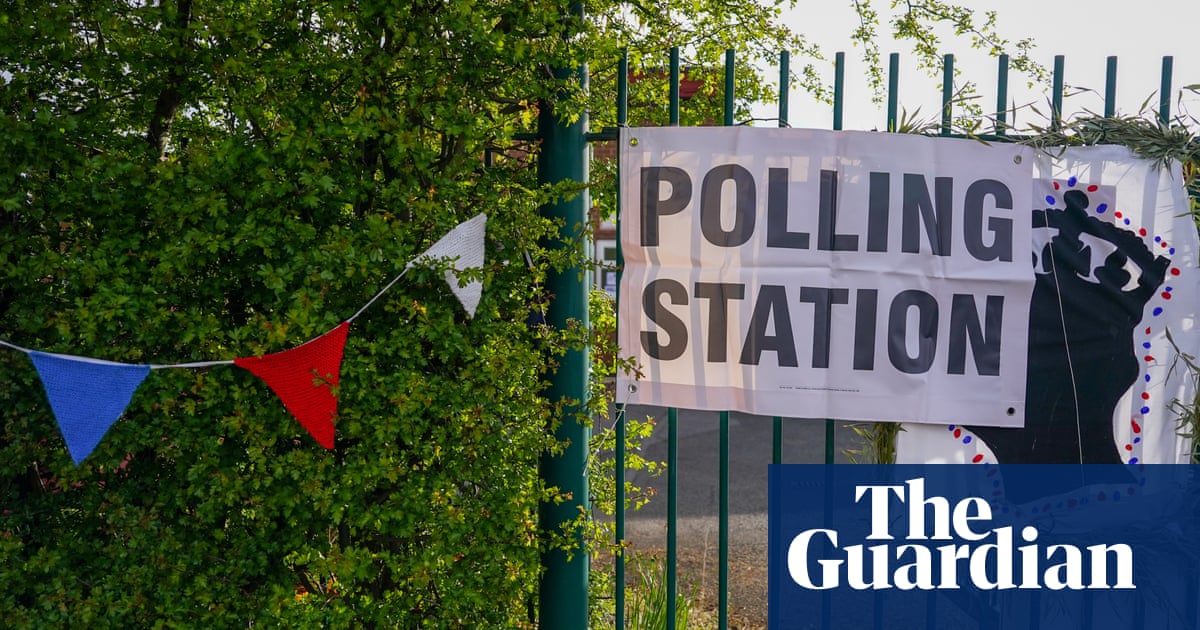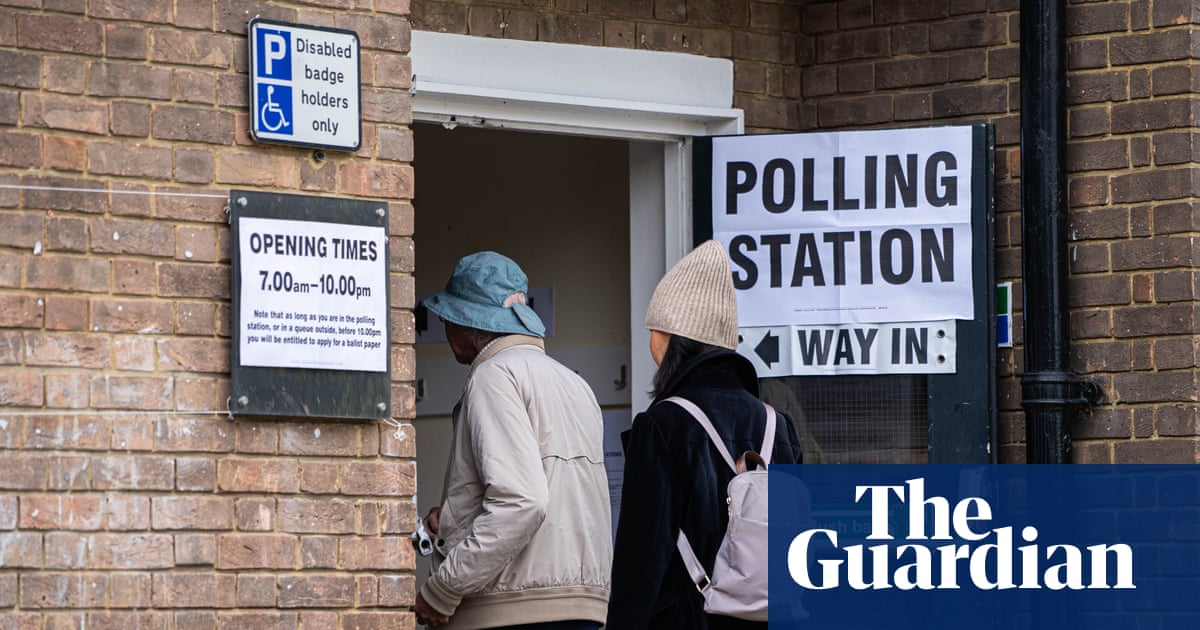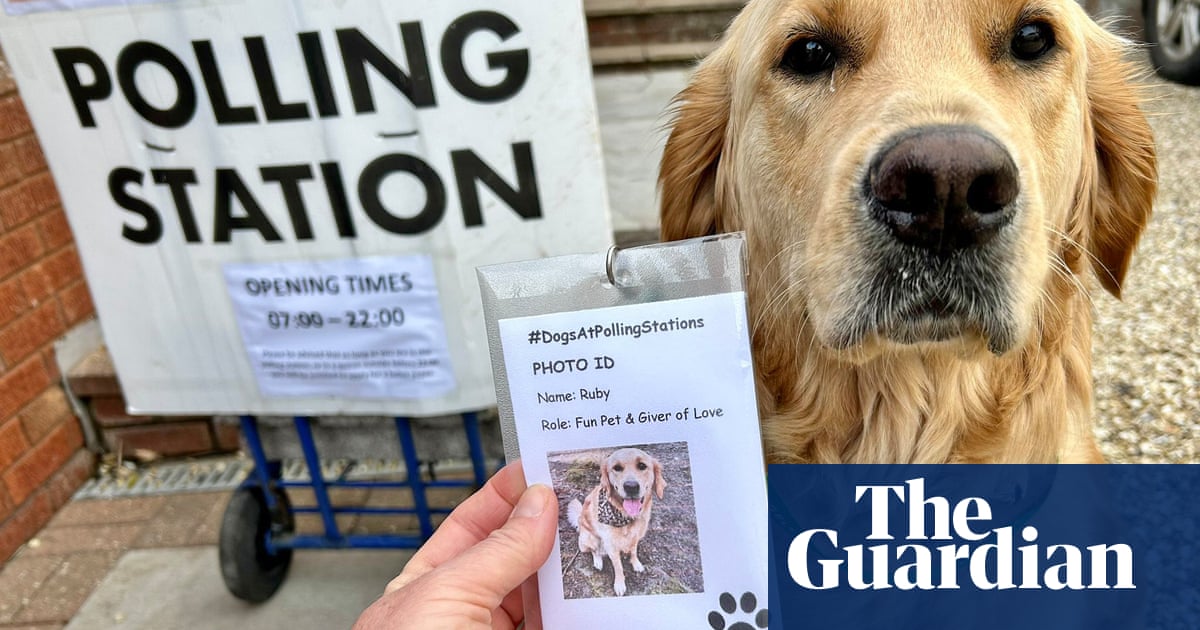
The introduction of voter ID in England has left a number of people, often from more marginalised groups, unable to cast ballots in local elections – although some officials’ fears of widespread chaos did not materialise.
However, opposition MPs and some administrators said a lack of conclusive data collection for the numbers who were unable to vote could mean the problem was notably worse than it appeared.
Anecdotal reports from campaigners, MPs and voters highlighted a series of examples in which people were turned away because they lacked one of the relatively small list of photo ID documents, under the law used for the first time in Thursday’s poll.
These cover slightly more than 8,000 seats across 230 councils in England, including metropolitan, unitary and district authorities, plus four mayoral races.
Tor Udall, a writer in Oxford, said she had been left in tears after watching an older woman with mobility problems refused a vote because her document was not the correct one.
One campaigner said they knew of about a dozen people being unable to vote in a single council area, with other reports saying older voters appeared often involved.
Some voters who are transgender or have transgender partners reported not being able to vote because their documents did not match their new name, having had difficulty applying for the government-issued voter ID certificate.
Clinically vulnerable people reported difficulties due to rules that say voters must remove any face coverings so staff can check their identity, with at least one voter being turned away.
Andrea Barrett, a voter in Hampshire who is immunocompromised, said she was not allowed to vote at her polling station, despite providing photographic ID and a video of her putting on her mask, as she refused to remove her face covering inside.
“I was denied my right to vote in person,” said Andrea. “As an immunosuppressed person, I should have been able to vote safely with appropriate reasonable adjustments in place.”
Mark Oakley, co-leader of the patient campaign group Evusheld for the UK, representing immunocompromised people, said they had heard a number of people had to “dig their heels in and say they weren’t taking off their mask”.
“We know lots of people contacted their local council about this and were told this was the guidance,” he said. “And we know many people said if that was the case then they weren’t even going to go to the polling station as they don’t want to risk it. And by the time people realised what the guidance was, it was too late to apply for a postal vote.
“We knew it was going to be a problem and we flagged it to the Electoral Commission weeks ago.”
The Electoral Commission has said this is one of a series of issues it will look into as it evaluates how the new voter ID system worked in the weeks after Thursday’s election.
Initial findings from the vote, coupled with polling on voters’ experiences, is expected in June, with a full report in September.
One potential flaw in the reporting will come through the use of so-called greeters outside some polling stations, who reminded people of the need for ID but did not take a note of those who then turned back. The only such tally was made by electoral staff inside polling stations.
The Electoral Commission has said it will publish separate data tables for the numbers of people refused a vote based on polling stations with and without greeters, but opposition MPs have argued this will limit the usefulness of the evaluation, and that it could be impossible to tally the numbers who did not turn out at all because they lacked ID.
Helen Morgan, a Liberal Democrat MP who speaks on local government, said: “The data collected today will never tell us quite how many people have been turned away at the polling station.
“The Conservative government’s voter ID regulations could be undermining our democracy. One thing is clear: these laws must be reversed before British citizens are denied their right to vote.”
Voter ID is already used in Northern Ireland because of previous examples of organised and mass voter impersonation by sectarian groups. But elsewhere in the UK, cases of voter impersonation have been rare.












